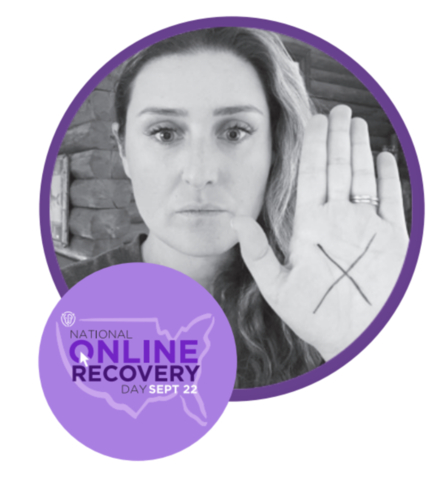REDWOOD CITY, Calif.– Lionrock, the inventor of online substance use disorders (SUDs) treatment and recovery services in the United States, today announced the theme for the third annual National Online Recovery Day campaign: Stop the Stigma. National Online Recovery Day is observed on September 22, during National Recovery Month. This year, in addition to engaging the public, Lionrock aims to invite business leaders and HR executives to celebrate National Online Recovery Day by creating more supportive and inclusive workplaces for employees in long-term recovery as well as those who are newly sober or sober-curious.
New CDC data shows the U.S. saw its biggest increase ever in the rate of drug overdose deaths in the first year of the Covid pandemic, proving that more than ever, it’s time to break the stigma around seeking help. That’s why Lionrock is also calling on supporters to spread awareness of National Online Recovery Day by taking part in a social media campaign. Participants are urged to help break the stigma attached to SUDs by wearing purple, the official color for National Recovery Month. Using the hashtags #StopTheStigma, #StoptheStigma@Work and #NationalOnlineRecoveryDay, participants are invited to post a photo of themselves using the “stop” sign hand signal with an “X” written on their palm.
Additionally, a National Online Recovery Day Community Toolkit is available to make it easy to participate in celebrating life in recovery. The toolkit includes:
- Infographics to share about recovery on social media
- Ideas for hosting thoughtful, sober events for National Online Recovery Day in the workplace
- A quiz to take or share about substance use disorder
Recent data from multiple federal agencies, including the CDC, found that increased usage of telehealth services during the COVID-19 pandemic was associated with a reduced risk of opioid overdoses. This research validates what industry leaders like Lionrock have been experiencing in their practices; online recovery saves lives.
With over a decade of experience successfully treating SUD through telehealth services, Lionrock’s inaugural National Online Recovery Day was established in 2020 to drive widespread awareness for the 42 million people impacted by SUDs, emphasizing that online recovery services are available, accessible from anywhere, and completely private. 2021’s theme was all about accessibility, recognizing that only 19% of those impacted by SUDs receive treatment. In 2022, Lionrock zeros in on the workplace. There are 25 million people in recovery from substance problems in the United States and about 75% of them are employed. This year, Lionrock aims to shine a light on how employers can create more inclusive workplaces for employees in long-term recovery.
“This past year saw many companies making advances toward more diverse and inclusive workplaces. Despite the progress, workers in long-term recovery from SUDs still face significant challenges due to stigma and lack of resources,” said Lionrock Co-founder & Chief People Officer, Ashley Loeb Blassingame. “That’s because too many people don’t understand that SUDs are a serious mental health problem, not a reflection of human weakness or lack of discipline. My own personal experience in recovery while growing Lionrock has taught me what employers can be doing to support and embrace employees in long-term recovery.”
Some simple steps that employers can take to create a more inclusive workplace for those in recovery include: asking senior leadership to share their recovery status; creating workplace traditions that people who abstain from drinking can participate in; creating and promoting self-care programs; establishing a recovery-focused employee resource group (ERG); and providing resources for employees in long-term recovery.
Recent Lionrock data shows these employees are well worth investing in. Employees in recovery are nearly 15% more likely to earn a $100,000 annual salary compared to employees who’ve never had an SUD – and employees in recovery are 11% more likely to be in mid and senior management positions compared to employees who’ve never had an SUD. These statistics suggest that these employees tend to be high earners and top performers, showing they are valuable to the companies they work for, but need a little extra accommodation. Recognizing this and offering support can reduce stigma and help more people find freedom in recovery–even in the workplace.


